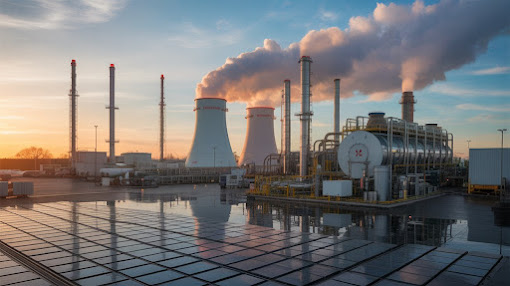Unlocking Agricultural Mechanisation | #sciencefather #phenomenological #agriculture
Unlocking Agricultural Mechanisation in Indonesia 🚜🌾: Barriers, Drivers, and Pathways for Sustainable Agri-Food Systems 🌍
Agricultural mechanisation in Indonesia is undergoing a silent revolution — one that holds transformative power for productivity, food security, and sustainability. Yet, while the potential is vast, numerous structural, social, and economic barriers continue to inhibit its full-scale implementation. For researchers exploring the agri-food system, understanding this complex landscape is essential for crafting inclusive and sustainable solutions. Let’s delve into the key barriers, powerful drivers, and promising pathways that define the future of mechanised farming in Indonesia.
🌐 The Context: Why Mechanisation Matters
With over 90 million people engaged in agriculture across Indonesia and a growing population demanding higher food production 📈, mechanisation offers a crucial pathway to improve agricultural efficiency and reduce post-harvest losses. Mechanised tools — from simple two-wheel tractors to advanced drones and precision irrigation systems — can ease labor shortages, increase yields, and reduce drudgery for smallholder farmers 🧑🌾👩🌾.
However, progress remains uneven, with vast regional disparities and a rural economy still rooted in traditional practices.
🚧 Key Barriers to Mechanisation
Despite its potential, agricultural mechanisation faces multiple challenges:
-
Small and Fragmented Land Holdings 🧩
Many Indonesian farmers own less than 0.5 hectares of land, making large machinery inefficient and economically unviable. -
Lack of Access to Credit and Finance 💰
High upfront costs for machinery and limited microfinance options keep modern tools out of reach for most smallholders. -
Insufficient Infrastructure 🏗️
Poor road connectivity and transport networks restrict the movement of machinery to rural farms, especially in remote islands. -
Limited Technical Know-How 🛠️
A shortage of skilled operators and mechanics, along with weak extension services, reduces the effective use and maintenance of equipment. -
Policy Gaps and Institutional Barriers 🏛️
Fragmented agricultural policies and inconsistent subsidies often discourage private-sector investment in farm mechanisation services.
⚡ Drivers of Change
While the challenges are significant, several promising drivers are accelerating the shift towards mechanised agriculture:
-
Government Initiatives 🇮🇩
Programs like Alsintan (agricultural mechanisation aid) and regional grants have improved access to machines for many rural communities. -
Private Sector Engagement 🤝
Agri-tech start-ups and service providers are introducing pay-per-use models and equipment leasing services that reduce costs for farmers. -
Youth and Innovation 👩💻👨💻
A growing number of tech-savvy rural youth are embracing digital tools, creating apps for machinery booking, and offering training workshops. -
Climate Resilience Needs 🌦️
Mechanisation supports climate-smart agriculture by enabling timely planting, efficient water use, and reduced emissions — all vital in Indonesia’s climate-sensitive regions.
🌱 Pathways for a Sustainable Agri-Food System
To unlock the full potential of mechanisation in Indonesia, researchers and policymakers must adopt a systems approach that addresses both ecological and socio-economic factors.
-
Promote Inclusive Business Models
Encourage cooperatives and farmer groups to co-own and manage machinery, supported by local governments and NGOs 🤲. -
Invest in Research & Local Innovation
Develop low-cost, modular, and eco-friendly machines tailored for diverse terrains and crop systems in Indonesia’s archipelago 🏝️. -
Strengthen Extension Services
Equip rural advisory centers with digital tools and hands-on training in machine operation, maintenance, and repair 🔧📱. -
Build Sustainable Financing Systems
Collaborate with banks, fintech, and cooperatives to design credit schemes that lower the entry barrier for smallholder mechanisation 📊. -
Policy Integration
Create a unified agricultural mechanisation roadmap involving multiple ministries (agriculture, infrastructure, finance, and environment) to ensure long-term coherence and sustainability 📘.
🔍 Final Thoughts
Indonesia’s journey toward agricultural mechanisation is not just about machines — it’s about people, equity, and sustainability. Researchers have a critical role in bridging knowledge gaps, co-creating solutions with farmers, and informing evidence-based policies. By addressing systemic barriers and amplifying enabling drivers, we can steer the nation toward a more mechanised, resilient, and food-secure future 🌾🚜🌱.
#Phenomenology#ResearchAwards#
Twitter: https://x.com/compose/post
Instagram: https://www.instagram.com/
Pinterest: https://in.pinterest.com/
Blogger: https://phenomenological21.




Comments
Post a Comment